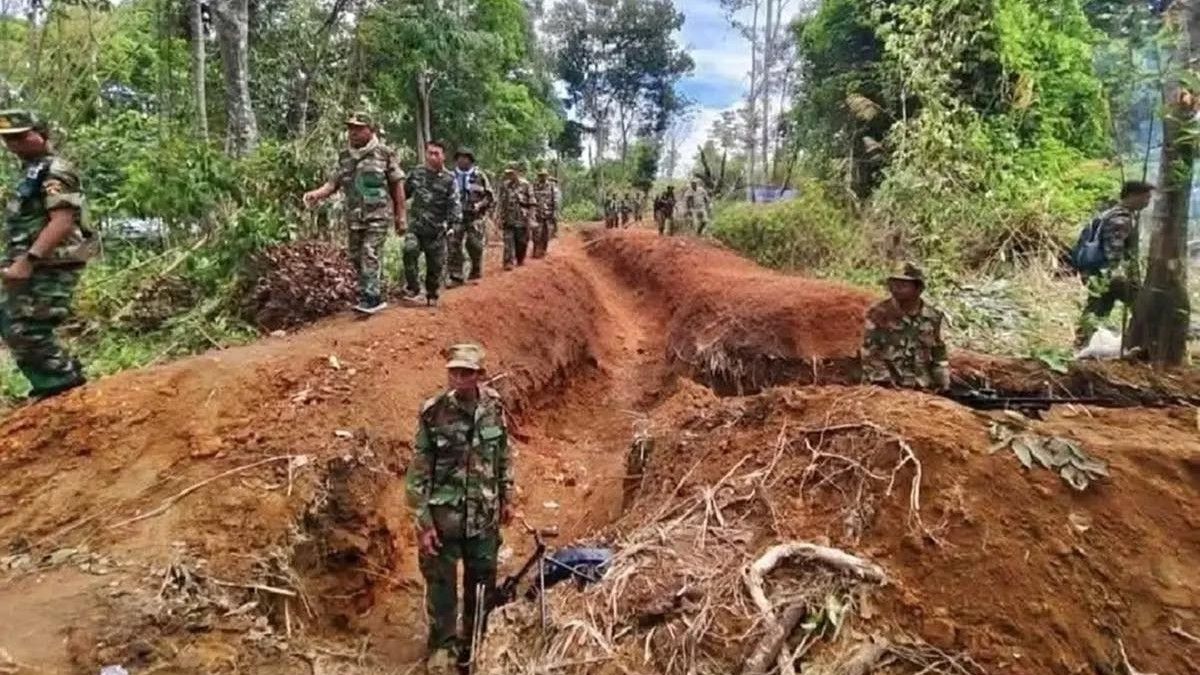Bangkok and Phnom Penh reach tentative deal, but the border remains closed
Despite the 10 September agreement in Koh Kong to reduce tensions, the situation on the Thai-Cambodian border remains unsettled. Bangkok is considering applying economic pressure, while mutual accusations continue over online scam centres favoured by Cambodia, which seeks to minimise the consequences of the armed conflict that broke out on 24 July. A recent media investigation found that at least 50 Cambodian soldiers were killed in the fighting.
Bangkok (AsiaNews) – Despite diplomatic efforts, the situation on the border between Thailand and Cambodia has not yet returned to normal.
During a bilateral meeting of the General Border Committee (GBC) on 10 September in Koh Kong province, Cambodia, the two sides reiterated their commitment to pursuing a series of initiatives to de-escalate hostilities.
In a statement, Cambodia’s Defence Ministry said that “both sides agreed on the urgent need to de-escalate tensions through removal of heavy and destructive weapons back to their respective normal military installations.”
The two countries had also agreed to reopen border crossings and establish a coordination committee for clearing landmines along the border, a situation that has resulted in the deaths of several soldiers.
Recently, however, Thailand’s Lieutenant General Boonsin Padklang, commander of the 2nd Army Region, backed the border closure at a forum in Chiang Mai to put pressure on Cambodia.
“It is a strategy giving Thailand an advantage in the fight, and it could bring permanent peace to the border without more losses,” he said to justify his opposition to opening border crossings.
“National security must take priority over short-term economic benefits,” he added.
These remarks come at a time of political fragility for Thailand. Thanks to the support of pro-monarchists and the progressive People's Party, Anutin Charnvirakul was appointed to replace Paetongtarn Shinawatra, who was removed from office by the Constitutional Court.
Charnvirakul told the Federation of Thai Industries yesterday that checkpoints would remain closed until the conflict is resolved, the Bangkok Post reports.
The conflict between Thailand and Cambodia broke out on 24 July, resulting in the deaths of scores of people and the displacement of around 300,000.
According to the latest report by the Humanitarian Response Forum, over 15,000 people have not yet returned to their homes. Furthermore, the number of Cambodians returning from Thailand because they feel unsafe is increasing.
In early September, the number of repatriated migrants rose to 878,818, but the true number could be at least one million, according to other estimates.
This mass exodus has created major problems in various sectors of Thailand’s economy. In response to the emergency, Thai authorities have preferred to grant work visas to Myanmar refugees.
The crisis began when fighting broke out over the Preah Vihear temple, officially Cambodian territory but claimed by Thailand. However, the conflict also concerns the presence of online scam centres in Cambodia.
While they are an important source of income for Cambodia, accounting for approximately 60 per cent of its GDP, Thailand sees them as a threat to its citizens. According to some estimates, Thais lose annually 115.3 billion baht (about US$ 3.6 billion) to online scams.
This explains the different narratives of the two Southeast Asian countries: Phnom Penh wants to portray itself as the victim of Thai attacks on its territory, while Bangkok has long maintained that its intention is to close all scam centres operating along its borders.
In the past, Thailand has regularly cooperated with China to repatriate Chinese nationals freed from online scam centres located between Thailand and Myanmar.
By contrast, former Cambodian Prime Minister Hun Sen, father of the current prime minister and now speaker of the Senate, has not accepted former Prime Minister Paetongtarn Shinawatra's criticism of the scam centres, often linked to his own family.
For its part, the United States in May sanctioned the Huione Group, linked to Hun Sen's nephew, Hun To, which has been accused of laundering billions of dollars from organised crime.
For this reason, according to some observers, Hun Sen released the taped phone call in which Prime Minister Shinawatra is heard criticising Thai army generals, which led to her ouster.
Meanwhile, Cambodian authorities have not released the death toll from the armed clashes, trying to downplay the issue and avoid highlighting domestic issues.
However, an investigation by Nikkei Asia of messages of condolence sent by the authorities to families and other posts on Facebook (the most used social media platform in Cambodia, including by members of the government), revealed that at least 50 Cambodian soldiers died in the conflict.
Overall, Thailand reported 30 deaths (15 military and 15 civilians), while Cambodia acknowledged the death of five soldiers and eight civilians without disclosing their identities.
16/07/2025 15:36
01/07/2025 16:59







.png)










